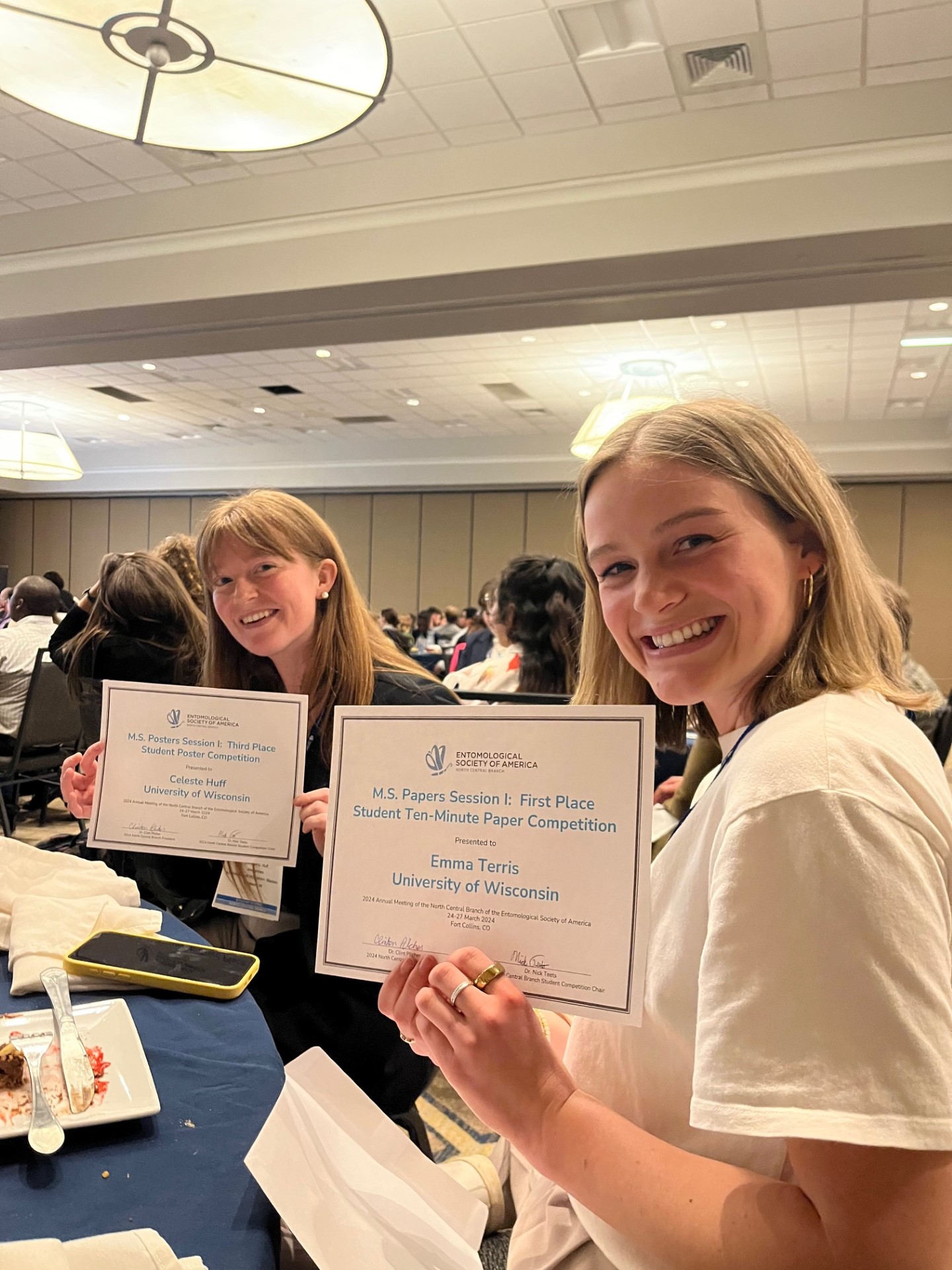Emma Terris awarded Wisconsin Potato Industry Board Distinguished Graduate Fellowship
 Emma Terris, a PhD student in the Groves lab, was recently awarded the Wisconsin Potato Industry Board (WPIB) Distinguished Graduate Fellowship in recognition of her research advancing our understanding of the genetics of the Colorado potato beetle, a key pest in potato production in Wisconsin.
Emma Terris, a PhD student in the Groves lab, was recently awarded the Wisconsin Potato Industry Board (WPIB) Distinguished Graduate Fellowship in recognition of her research advancing our understanding of the genetics of the Colorado potato beetle, a key pest in potato production in Wisconsin.
One portion of her project focuses upon the discovery and characterization of neuropeptides in the Colorado potato beetle (CPB), Leptinotarsa decemlineata. Through completion of these specific objectives, Emma will be able to link the patterns of neuropeptide expression with key life history traits (e.g., diapause induction, diapause duration, fat body accumulation and metabolism, etc.) of CPB. These will be foundational discoveries that will build upon prior research in the Groves lab, focusing upon the metabolic regulation of diapause and associated induction and duration. Her discoveries will also reveal promising and unique gene targets within this key pest which will aid in our ability to devise more sustainable control tactics (e.g., RNA—based) to deploy against this species with no expected consequences for other insect taxa.
A new segment of her research to begin her PhD program has been aimed at characterizing the potential for cross-resistance among different Mode-of-Action (MoA) classes of insecticides. Emma has initiated experiments to evaluate how small micro RNAs (miRNAs) are involved in CPB resistance to many commercial pesticides. What she has specifically learned is that the pattern of discrete gene (family) transcription appear to be regulated by miRNAs in insecticide resistance populations of the CPB. These gene families can include cytochrome P450 genes, glutathione transferases and ABC transporters; all of which are involved in Phase I and Phase II metabolism of insecticide toxicants. In imidacloprid-resistant CPB populations, these genes are strongly over-expressed and appear to function at elevated levels. When Emma initially arrived in the laboratory, the Groves lab was already investigating the potential for cross resistance to a new, and unregistered mode of action (Group 30) class meta-diamide insecticide, termed isocycloseram (Plinazolin). Bioassays of resistant CPB populations collected from around the US to this new active ingredient have now revealed that control with Plinazolin has already been compromised. These new findings further suggest that control with other, newly developed insecticides may be similarly challenged and that small miRNAs may play a role in the resistance response.
Recent posts »
- New bug-tracking project aims to help monitor health of Wisconsin waterways
- Faculty position available – Assistant Professor of Fruit Crop Entomology
- UW Entomology students Victoria Salerno and Sophie Perry recognized at ESA
- Dr. Emily Bick receives International Date Palm Prize
- Invasive tree-killing pest ‘highly likely’ to show up in Wisconsin, expert says
